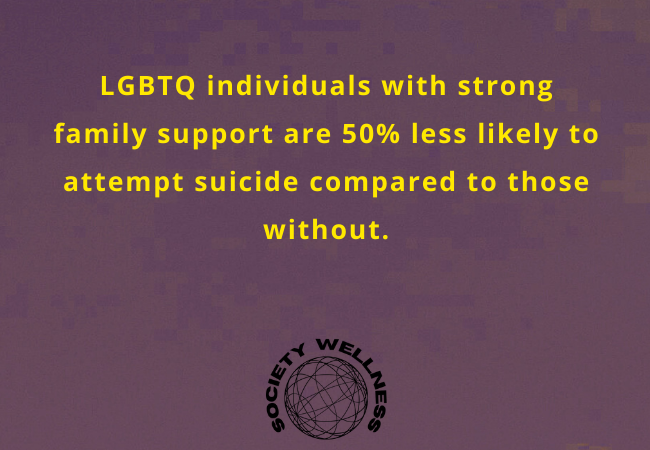Relationships don’t exist in a vacuum. For many LGBTQ couples, managing family expectations can be one of the most complex and emotionally charged aspects of their partnership. Whether it’s dealing with a disapproving parent, navigating cultural pressures, or figuring out how to come out together at family events, these challenges can put serious strain on a couple’s connection.
This is where LGBTQ couples therapy becomes a powerful tool—not just for resolving internal relationship issues but for navigating external stress as a unified team.
At LGBTQ Behavioral Health Treatment Center Massachusetts, we specialize in creating affirming, culturally competent spaces where couples can strengthen their bond while addressing real-world pressures. Through LGBTQ Couples and Marriage Counseling in Massachusetts, as well as more structured care options like our LGBTQ PHP Treatment and Intensive Outpatient Programs, we help couples communicate more effectively, set healthy boundaries, and stay grounded in their values.
Why Family Expectations Hit Harder for LGBTQ Couples
Family pressure is a common challenge in all types of relationships. But for LGBTQ individuals, it often carries extra weight due to:
- Cultural and religious norms that reject or invalidate LGBTQ identities
- Fear of rejection or disownment
- Family denial or refusal to recognize the relationship
- Pressure to conform to heteronormative milestones (e.g., marriage, children)
- Comparisons to heterosexual siblings or relatives
- “Don’t ask, don’t tell” attitudes at holidays or family events
- Being forced to “hide” your relationship or gender identity
This emotional labor can be exhausting and isolating—and it doesn’t just affect one partner. Over time, these unspoken tensions can create resentment, anxiety, and communication breakdowns within the relationship.
The Role of LGBTQ Couples Therapy in Navigating Family Stress
LGBTQ couples therapy provides a neutral, affirming space to:
- Process family-related emotional pain
- Understand each other’s boundaries and triggers
- Strengthen communication and resilience
- Create shared strategies for setting boundaries with loved ones
Here’s how LGBTQ-focused therapy can help you and your partner address these challenges with clarity and compassion.
1. Validating Lived Experiences and Emotional Impact
Therapists trained in LGBTQ Queer Therapy in Massachusetts understand that family conflict isn’t just about a disagreement over dinner plans—it often ties into deeper issues of identity, safety, and belonging.
Therapy can help partners:
- Recognize and name the impact of family rejection
- Validate grief over losing familial support
- Unpack internalized shame and trauma
- Navigate guilt over “disappointing” family traditions
For many couples, just having a safe space to say the unsaid is the beginning of healing.
2. Developing Unified Boundaries
Partners may have different comfort levels with family engagement. One may be “out” and ready to cut ties with unsupportive relatives, while the other is still closeted or culturally obligated to maintain family relationships.
Therapy helps couples:
- Communicate needs and limits without judgment
- Create clear, respectful boundaries as a team
- Understand and respect differing levels of “outness”
- Prepare for family gatherings with shared expectations
Having a unified plan reduces last-minute anxiety and builds trust between partners.
3. Navigating the Coming Out Process Together
Coming out isn’t always a one-time event—it can be ongoing, layered, and emotionally complex, especially for couples. Therapy provides tools for:
- Deciding if/when to come out to specific family members
- Preparing emotionally for various responses
- Rehearsing what to say and how to say it
- Supporting each other before, during, and after the conversation
This process is especially important when couples face unequal outness or are preparing to come out together.
4. Building Cultural Understanding Within the Relationship
In intercultural LGBTQ couples, family dynamics can differ drastically. One partner may come from a culture where family ties are central and refusal to engage is seen as disrespect, while the other may have already been disowned.
Therapists help couples:
- Discuss cultural expectations without blame or defensiveness
- Explore how identity, safety, and loyalty intersect
- Balance honoring family roots with protecting personal boundaries
This cultural compassion strengthens connection, even when perspectives differ.
5. Role-Playing Difficult Conversations
Couples therapy provides a safe space to practice:
- How to respond to misgendering or offensive remarks
- How to stand up for your partner respectfully
- How to handle intrusive questions about your relationship
- What to say when family denies your identity or partnership
This kind of rehearsal reduces anxiety and helps couples feel more prepared and empowered in high-stress situations.
6. Preventing “Split Loyalty” and Resentment
When family members treat one partner as invisible or invalidate the relationship, it can create emotional triangulation:
- One partner feels caught in the middle
- The other feels unsupported or erased
- Both partners grow resentful of each other—or the family
Therapy helps partners recognize these patterns early, talk about their needs with compassion, and create action plans that protect the relationship from long-term damage.
7. Addressing Mental Health Impacts
Constant family tension can take a toll on mental health. Common symptoms include:
- Anxiety before holidays or visits
- Panic attacks or depressive episodes
- Sleep disturbances
- Feelings of shame, guilt, or emotional exhaustion
If these symptoms worsen, more structured care may be needed. We offer:
- LGBTQ PHP Treatment in Massachusetts (Partial Hospitalization Program) for full-day support
- LGBTQ Intensive Outpatient Program in Massachusetts (IOP) for flexible, part-time care
These programs provide therapeutic tools, peer support, and stabilization for clients whose emotional well-being is being compromised by family conflict.

What LGBTQ Couples Therapy at Our Center Looks Like
At LGBTQ Behavioral Health Treatment Center Massachusetts, you’ll find:
Clinically rigorous, identity-affirming therapy that includes:
- Queer-identified or highly trained affirming clinicians
- LGBTQ Couples and Marriage Counseling in Massachusetts tailored to your unique dynamic
- Family systems work, identity processing, and communication coaching
- Trauma-informed practices for clients navigating rejection, coming out, or emotional abuse
Tools and strategies include:
- Assertive communication techniques
- Emotion regulation and mindfulness
- Co-created boundary setting
- Narrative therapy for rewriting painful family scripts
- Cognitive-behavioral reframing around identity and acceptance
Integrated support for deeper needs:
- LGBTQ Mental Health Programs in Massachusetts
- Trauma recovery and complex family dynamic exploration
- PHP and IOP for clients with co-occurring anxiety, depression, PTSD, or substance use
Why Choose LGBTQ Behavioral Health?
We are more than an LGBTQ-friendly practice—we are an LGBTQ-centered therapeutic community built by and for people like you.
What makes us different:
- Deep understanding of cultural, gender, and identity nuance
- Nonjudgmental, trauma-informed, affirming care
- Full spectrum of services: individual, couples, group therapy, PHP, and IOP
- Specialists in family rejection, parenting, transition, and cultural trauma
Reclaim Your Relationship From Family Pressure
You don’t have to choose between love and family. And you don’t have to navigate these decisions alone. LGBTQ couples therapy helps you define your boundaries, advocate for your relationship, and heal emotional wounds—as a team.
Whether you’re planning a holiday visit, preparing to come out, or managing ongoing conflict, therapy gives you the tools to face it together—with clarity, confidence, and compassion. Call us today at 888.964.8116, Let us help you navigate family dynamics while building a relationship that feels strong, safe, and fully seen.
FAQ on LGBTQ Couples Therapy
How can LGBTQ couples therapy help with family pressure?
It provides tools to set healthy boundaries, manage external stress, and communicate effectively as a couple when dealing with unsupportive or demanding family members.
What if our families don’t accept our relationship?
Therapy offers a safe space to process rejection, build mutual support, and plan how to maintain or limit family contact in ways that honor your well-being.
Can therapy help with cultural or religious family expectations?
Yes. LGBTQ-affirming therapists help couples navigate cultural loyalty and family obligations without compromising safety or identity.
What if one of us wants to cut off family and the other doesn’t?
Therapy helps couples explore different comfort levels, align expectations, and avoid resentment through empathy and structured compromise.
Can we prepare for coming out to family in therapy?
Absolutely. Couples therapy helps you plan what to say, role-play conversations, and process emotions before and after coming out.
What if our mental health is impacted by family conflict?
We offer LGBTQ IOP programs in Massachusetts that provide more structured care when family-related stress affects your mental health or daily functioning.
Can couples therapy help with holiday planning or family events?
Yes. Therapists help you create shared strategies for attending (or skipping) events, responding to misgendering or invalidation, and supporting each other in public spaces.
Is LGBTQ couples therapy only for crisis situations?
Not at all. Many couples use therapy to strengthen their bond, manage outside stress, or plan important relationship milestones like coming out or parenting.

